Short Answer:
The str = String("Hi"); statement invokes the default copy-assignment operator (implicitly-declared) special member function of your class. While destruction (two objects are being created in your program), the same memory will be destroyed twice because two objects in your program points to the same memory and they both consider themselves as the owner of the memory.
Long Answer:
Since, you haven't defined the copy-assignment operator and compiler generated version would copy the pointers (shallow copy) to the other class.
If no user-defined copy assignment operators are provided for a class type (struct, class, or union), the compiler will always declare one as an inline public member of the class.
The implicity-declared copy-assignment operator generated by compiler would look like:
String& operator=(const String& other)
{
strData = other.strData;
len = other.len;
return *this;
}
So, the implicitly-declared copy-assignment operator member function does the shallow copy and hence, it just copy the pointer's (not their value). Before the end of str = String("Hi"); statement, you will be having two String objects (str object and temporary object created by String("Hi")) and their strData will be pointing to the same character array. When the temporary generated by String("Hi") will be destroyed, it will free the memory and when str object will be destroyed, it will also try to free/delete the same memory and hence, you are getting your heap corrupted.
Learn about copy-and-swap idiom. Try this:
String& operator=(String other)
{
swap(other, *this);
return *this;
}
void swap(String& first, String& second)
{
std::swap(first.strData, second.strData);
std::swap(first.len, second.len);
}
Try the program below. I have commented out the copy-assignment operator to demonstrate a pointer getting destroyed twice.
#include <iostream>
#include <string.h>
class String {
public :
String(void): strData(nullptr), len(0)
{
std::cout << "constructor executed !" << std::endl;
}
String(const char *str)
{
len = strlen(str);
strData = new char[len + 1];
std::copy(str, str + len + 1, strData);
std::cout << "Constructing memory: " << strData << std::endl;
std::cout << sizeof(str) << std::endl;
std::cout << sizeof(len) << std::endl;
std::cout << sizeof(strData) << std::endl;
std::cout << strData << std::endl;
}
// String& operator=(String other)
// {
// swap(other, *this);
// return *this;
// }
~String()
{
if (strData == nullptr)
return;
std::cout << "Destroying memory: " << (void *)strData << std::endl;
delete[] strData; //Fails here!
}
char* GetStrData(void) const
{
return strData;
}
int GetLen(void) const
{
return len;
}
void swap(String& first, String& second)
{
std::swap(first.strData, second.strData);
std::swap(first.len, second.len);
}
private :
char* strData;
int len;
};
int main()
{
String str;
str = String("Hi");
return 0;
}
Output:
constructor executed !
Constructing memory: Hi
8
4
8
Hi
Destroying memory: 0x7fffc5628080
Destroying memory: 0x7fffc5628080

